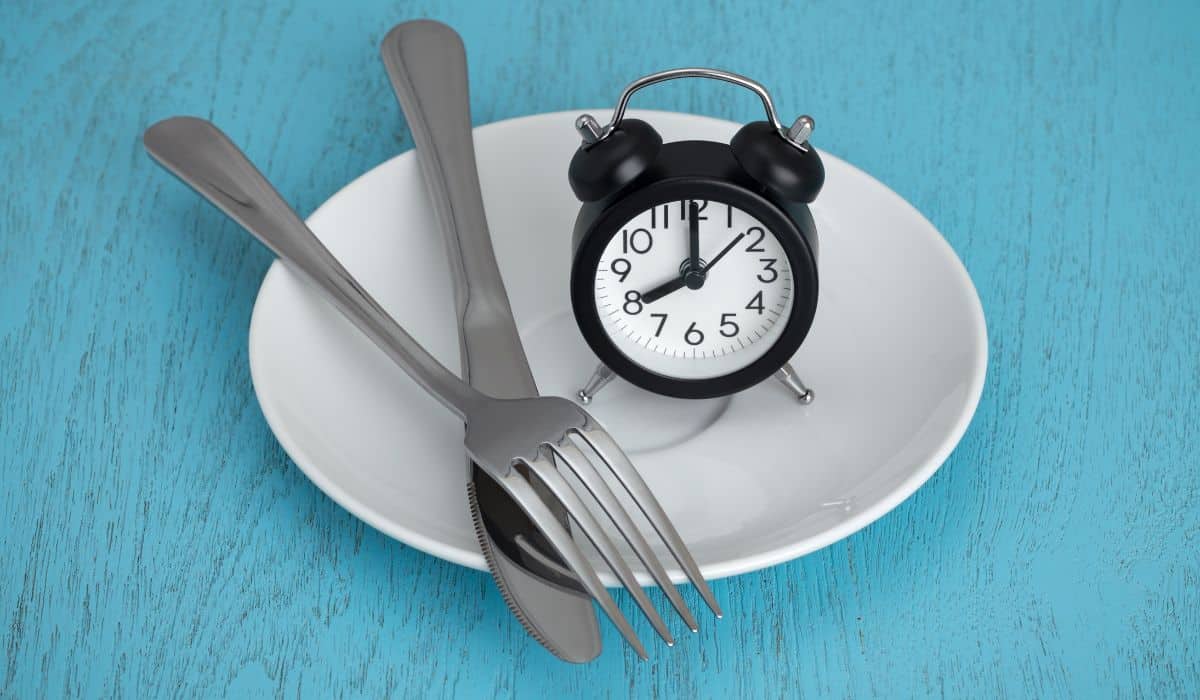
When it comes to eating schedules, humans are built for flexibility. It’s a complete myth that people “need” to eat three times a day (or 6 meals a day, or on any other specific schedule). Think about that for a minute: there’s no way we would have survived the caveman days if we needed to eat every few hours. If we were really that fragile, we would have died off ages ago.
3 meals a day is the typical cultural pattern, but who says your particular body might not do better on some other eating schedule? Some people prefer to eat every day, but within a restricted window. Other people eat normally most of the time, but occasionally embark on long fasts.
But there’s also an option in between: eat normally on some days, but then periodically go on a 24-hour fast. A common option is alternate-day fasting, but some people also do 1-3 fast days per week on set days.
The Case for One-Day Fasts
For weight loss, the idea of occasional 24-hour fasts is basically low-effort calorie reduction. Sure, most people will be hungrier and eat more on the day after their fast, but they probably won’t eat twice as much as they otherwise would. And that calorie reduction comes without the need to count the calories in anything you eat - the only question is yes or no on food for the day.
This is more or less the same idea as a restricted eating window (say, eating only between noon and 8pm). But some people find that cramming all their food into a short eating window gives them an upset stomach - for those people, one-day fasting might be easier because on “feeding” days, you can spread out your meals normally.
In terms of benefits that aren’t related to weight loss, fasting has been claimed to help with everything from cancer prevention to life extension, but most of those claims are based on animal studies, and it’s not clear whether the benefits in humans live up to the hype.
In this post, we’ll take a look at studies on one-day fasts and alternate-day fasting, focusing on some specific questions:
- Do regular fast days work for weight loss?
- Do regular fast days have benefits other than weight loss?
- Are the effects different in lean vs. obese subjects?
At the end, we’ll also take a look at variations on the one-day fast theme, including modified fasting.
One-Day Fasts: The Big Picture
A lot of the research on this has focused specifically on alternate-day fasting (eat on Day 1, fast on Day 2, eat on Day 3, fast on Day 4, etc.). In terms of weight loss, here’s a big-picture overview of review studies:
- Alternate-day fasting is just as effective as very-low calorie diets for weight loss, but it may be easier: some patients found it simpler to fast every day than to restrict calories every day.
- Unfortunately, an alternate-day fasting scheme doesn’t prevent your metabolism from fighting back against weight loss. This review looked specifically at metabolic adaptations to weight loss. You might expect that alternate-day fasting would be superior to constant dieting here, but the study didn’t actually find evidence of that - both were about the same.
As for non-weight-related benefits, the evidence in humans is mixed but encouraging:
- A 2007 review of alternate-day fasting found that it may help to improve blood lipids (higher HDL cholesterol, lower triglycerides), but also found that alternate-day fasting and ordinary calorie restriction were equally good for insulin levels and blood sugar control.
- Another study found that severe calorie restriction (less than 20% of energy needs) on alternate days reduced inflammation and oxidative stress in overweight adults with asthma.
- Finally, this study found that intermittent energy restriction (less than 25% of energy needs) reduced inflammation and improved blood lipids in overweight women.
Is it a magical cancer prevention/cure strategy? No, but nothing really is. In overweight subjects, one-day fasts seem to reduce some measures of overall physical stress and chronic poor health.
Obese vs. Non-Obese Subjects
Some more dramatic weight-loss strategies (e.g. protein-sparing modified fasts) are fine for people with a lot of weight to lose, but don’t work so well for the last 5-10 pounds. So what about occasional one-day fasts?
This study looked at alternate-day fasting in 16 non-obese subjects (8 men, 8 women). The subjects fasted every other day for 22 days. On average, they lost about 2.5% of their initial body weight (so a 150-pound person would lose just under 4 pounds). But they never stopped being hungry on fasting days. Considering that most people don’t want to be hungry every other day for the rest of their lives, this suggests that alternate-day fasting might not be the best strategy for people who are already fairly close to their target weight.
On the other hand, not everyone responds the same way. Some fairly lean people might be perfectly happy taking regular fast days. The study did show that it worked fine, just that it wasn't pleasant. If you don't notice the same amount of hunger, it might be just the thing for you.
Variations on a Theme
Most of the studies so far have been in alternate-day fasting. But the same ideas (a hormonal break from digestion, low-effort calorie reduction) still apply to slightly less rigorous fasting protocols like...
Fasting 1-3 days per week
The benefit: makes your social calendar easier.
One big barrier to alternate-day fasting is that most of us have a weekly schedule, and weeks have an odd number of days. Fasting every other day means that you’re constantly changing the day of the week when your fast happens, which can be inconvenient. It may be easier for some people to fast on specific calendar days, rather than every other day.
Modified Alternate-Day Fasting
The benefit: reduces hunger and makes the fast more tolerable.
In a modified alternate-day fast, you basically get one mini-meal to tide you over on “fast” days. So it’s not really a fast; it’s more of an alternate-day crash diet. In fact, some of the studies in the section about non-weight-loss benefits used this approach rather than absolutely 0 food intake on fast days. Two more studies suggesting that modified fasting can be helpful:

- This study found that the “automatic calorie restriction” benefits still held true with a modified one-day fast. On their “fast” day, the subjects got 25% of their calorie requirements. On the next day, they ate a little more, but not enough to make up for the huge deficit that they created on the fast day.
- This study found that just one modified fast day per week (330-430 calories on the “fast” day) made weight maintenance easier. In fact, it outperformed a typical “heart-healthy” Food Pyramid-style diet.
If you took this approach with a Paleo-style diet, your mini-meal on the "fast" day might be...
- 3 eggs fried in butter with some vegetables
- A small piece of salmon with wilted spinach
- Roasted vegetables with ½ chicken breast
Is it Worth a Try?
Probably yes if…
- You’re primarily interested in weight loss, especially if you have quite a bit of weight to lose
- You don’t mind the idea of going a whole day with no or very little food
- You have a lot of weight to lose.
Probably no if…
- You’d rather just eat less every day (there’s no evidence that alternate-day fasting works better, so you may as well do what you prefer).
- You do very intense exercise most days or every day.
- You get unpleasant side effects (weakness, dizziness, feeling cold, etc.) from fasting. If you still want to fast in this case, you might consider the classic “intermittent fasting” design with a compressed eating window, which can be a little less intense but still has similar benefits.
Have you ever tried daily fasts? How many times a week? Did you fully fast, or did you do a modified fast? Let us know on Facebook or Twitter!





Leave a Reply